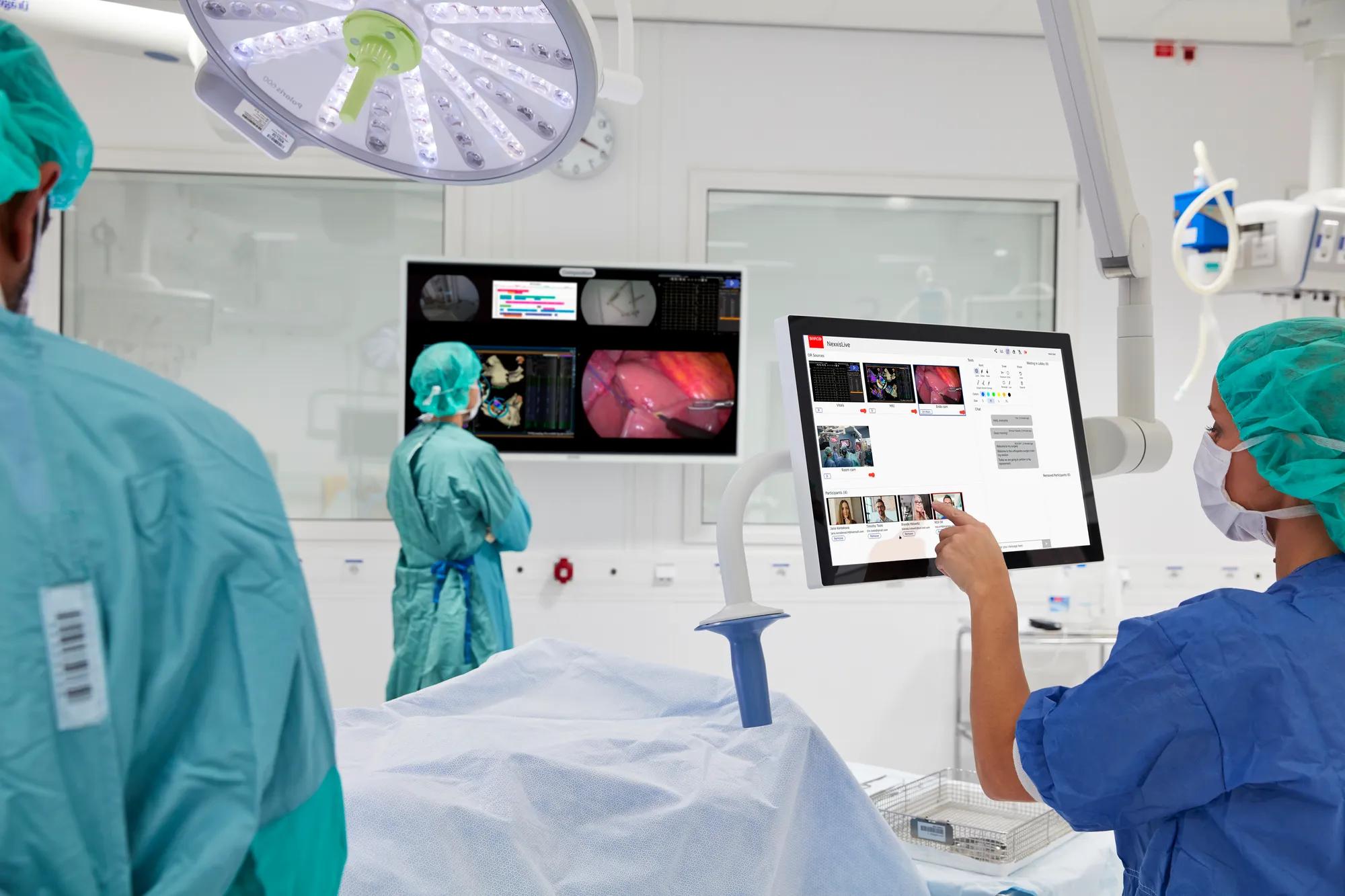How the remote OR can boost your hospital’s efficiency
Healthcare · Insights · 3 min read
For many office workers, remote work has become a logical part of their job. Many of us don’t have to be in the same physical space as our colleagues to do our job. In certain sectors, like surgery, remote work is not that evident. And yet, virtual remote operating rooms (ORs) are already here.
OR efficiency
Today, surgical video can be consulted anywhere there is authorized internet connection. Surgical procedures can simply be streamed via a high-bandwidth network and secure gateway.
This creates a lot of opportunities to optimize efficiency in the operating room. When healthcare specialists or even non-clinical personnel do not have to be physically present in the OR, there is no need to travel or lose time because of incompatible work schedules.
In times when OR efficiency, cost reductions, and scarce medical resources are on top of the agenda, remote access to the OR is part of the solution. The example of telesurgery – an intervention performed by a surgeon who is not physically located with the patient – probably appeals most to the imagination.
But the possibilities expand well beyond that, to include telementoring, teleproctoring, and teleconsulting. While securely connected with remote participants, it has become much easier to meet, train, consult and interact with clinical and non-clinical professionals.

Remote surgery and training
The need for training in healthcare is high. With the increased complexity of today’s OR, including a high number of technologies that are brought in, surgical teams need to rapidly learn and adapt to new techniques to deliver safe and accurate care. Some surgical specialties have steep learning curves because of their complexity and difficulty, resulting in long operation times and increased risk of post-op complications.
With a remote collaboration platform, it becomes much easier to facilitate remote training and guidance, in a number of ways:
- Telementoring is the remote, real-time guidance or teaching of a treatment or a surgical procedure where the local doctor has no or limited experience. This can also include remote access to the OR for vendor representatives who need to guide surgeons on the correct use of equipment or materials.
- Teleproctoring is the monitoring, skill assessment and evaluation of surgical trainees from a distance.
- Teleconsultation involves the transmission of still or video images for review by a remote specialist, who can then communicate their opinions to the local surgeon.
Clinical procedures, wherever you are
Barco’s NexxisLive platform makes remote access to the OR more convenient, making it easier and more cost-effective for remote specialists to put their expertise at the service of local surgeons, trainees, and students - and of course, their patients.



